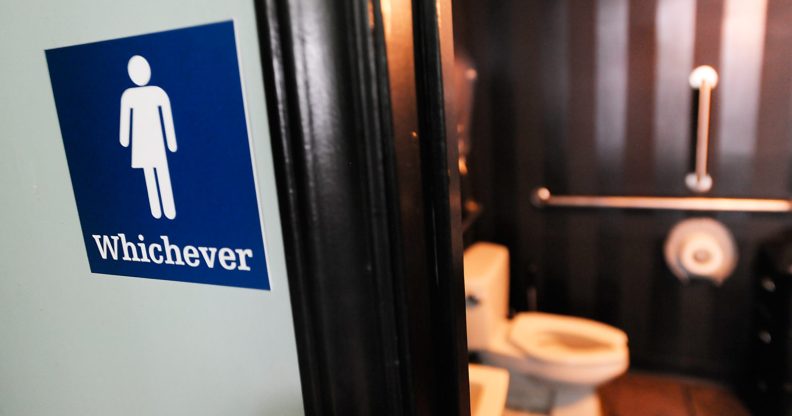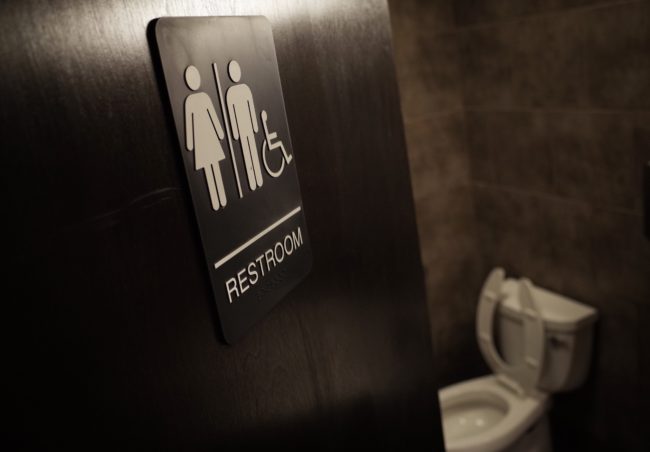No evidence of higher crime rates in transgender-inclusive spaces

A gender neutral sign is posted outside a bathrooms at Oval Park Grill on May 11, 2016 in Durham, North Carolina (Sara D. Davis/Getty)
There is no evidence for the claim that allowing transgender people to use the public facility of their choice would increase violations of privacy and crime, new research has found.
The study conducted by the California-based Williams Institute on Sexual Orientation and Gender Identity Law and Public Policy studied the situation in the state of Massachusetts, where Governor Charlie Baker signed into law an anti-discrimination bill including transgender people in 2016.
The bill banned discrimination against transgender people in housing, employment, as well as public accommodations and was opposed by critics who claimed that trans-inclusive spaces would allow people with “evil intentions” to “prey on the vulnerable.”
The group making this assertion, called Keep MA safe, has since been trying to repeal the bill and succeeded in including a vote on the issue on the ballot in the upcoming November midterm elections.
Anti-trans groups across the US, and in other countries such as the UK, have also used similar arguments that people could abuse the system of self-identification and therefore endanger women and girls.
The study, which was published in the peer-reviewed journal Sexuality Research and Social Policy in July, found these fears to be baseless.

(Mandel Ngan/AFP/Getty)
Researchers analysed data for a minimum two years before the 2016 bill was introduced, as well as for a period after it passed, comparing crime rates between locations in Massachusetts that enforced trans-inclusive policies versus those that did not.
The study looked into public records concerning criminal incident reports related to assault, sex crimes and voyeurism in public restrooms, locker rooms and dressing rooms to measure safety and privacy violations in these spaces. Findings indicated that reports decreased after the bill was passed.
“This study finds that the passage of such laws is not related to the number or frequency of criminal incidents in these spaces,” researchers write.
“Additionally, the study finds that reports of privacy and safety violations in public restrooms, locker rooms, and changing rooms are exceedingly rare.
“This study provides evidence that fears of increased safety and privacy violations as a result of nondiscrimination laws are not empirically grounded,” the researchers concluded.
The study also found that perpetrators of such crimes seldom identify as transgender.
Campaigner Matthew Wilder, a spokesperson with the Freedom for All Massachusetts, a group that opposes the Keep MA Safe campaign, noted that anyone who enters public spaces with the intent of committing a crime can still be prosecuted regardless of their gender identity.
“There are still laws that prohibit that,” he told The Boston Globe.
Keep MA Safe rejected the study’s findings, claiming the researchers were “biased” in a statement to NBC News because the campaigners had yet to review the study, unlike their rival group—accusations the Williams Institute rejected, defending its status as an “independent academic research institution.”

